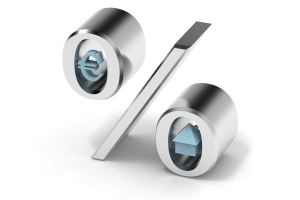An offshore bank account is a legal way to bank your money. Offshore accounts have all sorts of dangerous and sexy connotations – they seem like the type of account that James Bond villains would use, and although there are a number of reasons why a person might use an offshore bank account, they tend to be to do with tax and liability. People might want to lower their tax bill or reduce liability – having the money in a different country means that you pay a reduced tax rate, and it also means that your money is in a different country should you run into trouble with creditors – money in a different country means that it’s ruled by that government’s laws.

Opening an offshore bank account is not illegal. However, if you open it for an illegal reason, such as because you want to evade taxes or because you’re hiding your money – or simply because you owe money and you want to hide it away – you could still get into trouble. If your reasons for opening an offshore bank account are just, for example because you want to operate your business in a number of different countries, then you should be fine. One problem with offshore accounts is that if something goes wrong, your money is no longer guaranteed. Banking in the U.S. ensures that you get your money if someone gets access to your account illegally or if the country goes bust or if the banking system fails. If something goes wrong in another country, your money could disappear – and there wouldn’t be anything you could do with it. Banking offshore carries risks, and this is definitely one of them – especially given the current global economy.
Opening an Account
Before opening an offshore bank account, there are a number of things you need to know about the money that you have to put in and where in the world you need to be. Most accounts can be opened with just an email, but others will require phone contact too. Every offshore bank account will have a minimum deposit and a minimum amount of funds that you have to declare. This can vary, but $10,000 is usually about the level that you’d be looking for.
It’s always worth remembering that your money is somewhere else – you are in a different country to it and so if something goes wrong, there is absolutely no way to protect what’s yours.
Where to Set Up an Account
Generally, the location of an offshore account is chosen simply because of the benefits that it offers. There are a number of very popular locations for offshore accounts and these are as follows:
Singapore: Singapore has the lowest tax rate in all of Asia and it also invests into the economy of China – this means that investing in a Singapore offshore bank account should save you money on taxes, you’ll also be investing into one of the world’s fast-moving economies. Local experts at the bank will also be able to pick and choose where to invest your money and because the economy is so strong, your money could be incredibly safe in Singapore. It’s also very easy to set up an account in Singapore and is pretty much the same process as setting an account up in America.
Luxemburg: Luxemburg does have more red tape than other locations for offshore accounts, but your money could be well-protected. Luxemburg has a very stable economy and although it might not grow as quickly as the economy in Asia and you’ll have a slower rate of growth, the trade-off is that you’re not investing money in an economy that is strong but still developing. You’ll also need to have a reference from the bank that you currently bank with and you might need to answer a number of questions about what you plan to do with your money in the country, if anything. Investments alone are also accepted.
Switzerland: often chosen because of the secrecy surrounding private affairs in Switzerland, accounts here are an excellent choice as most legal matters such as divorce, bankruptcy and taxes are considered to be very private. Switzerland is also unlikely to bow to pressure from different countries, but if a creditor or someone similar knows that you have a Swiss bank account, they’ll want to find out if you’re hiding something.
Cayman Islands: the Cayman Islands are another popular choice for offshore accounts as it is very possible to be very secretive with your money. Corporations tend to be catered to very well in the Cayman Islands and accounts can be opened with just a corporation name. That means that if you have a number of holding companies, your name can be obscured. The islands don’t supply deposit and credit information either – that’s supposed to be your job so that you pay your taxes properly!
Banking offshore can be a very good way to secure your investments, keep your money safe and grow your business. Offshore bank accounts don’t require you to report your income to the tax man. Unlike accounts in the U.S., offshore accounts leave you on the honor system – meaning that you have to report your income. If you don’t, you will be breaking the law, and you might have to bring your money back into the U.S. – or go and live where your money is located permanently and be liable to the taxes of that country. Remember, no money is tax free and no matter what you do with it, you will need to pay taxes somewhere. Hiding your money because you want to hide from the tax man will come back to bite you on the behind – so use offshore accounts wisely, and above all, legally.





